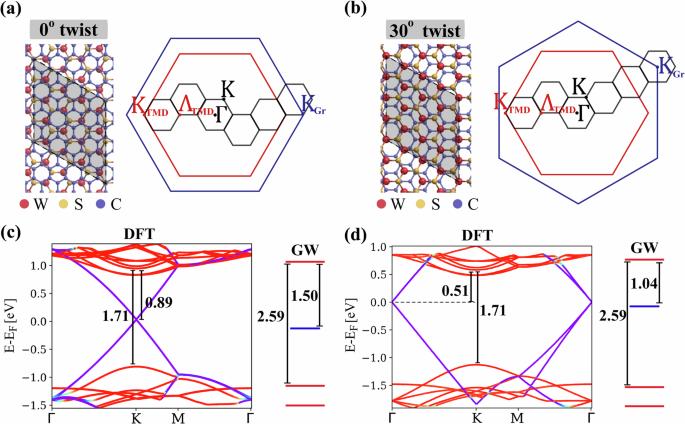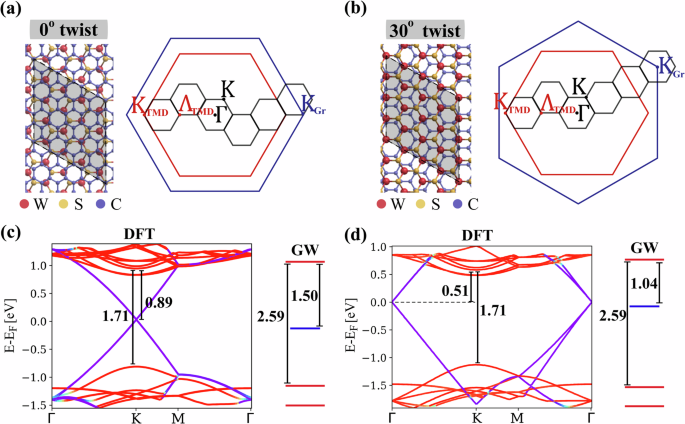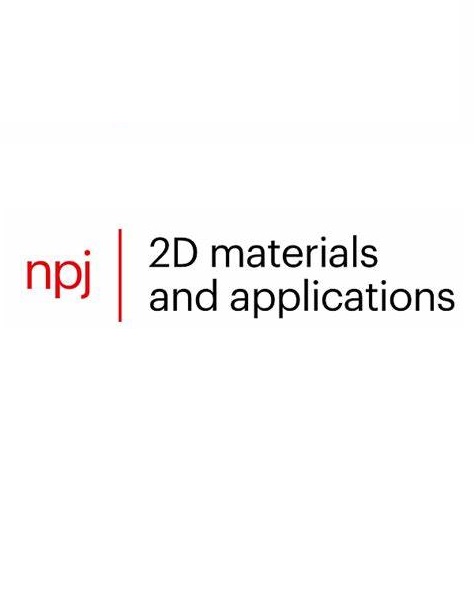在 WS2 石墨烯异质结构中通过层对齐实现可设计的激子混合
IF 8.8
2区 材料科学
Q1 MATERIALS SCIENCE, MULTIDISCIPLINARY
引用次数: 0
摘要
由过渡金属二卤化物(TMDs)和石墨烯等层状二维材料组成的异质结构的光学特性得到了广泛的探讨。这些材料中的光诱导能量传递机制及其结构根源尤其引人关注。在此,我们采用最先进的第一原理计算方法,研究了 WS2-石墨烯异质结构的激子组成和吸收特性与层间排列及由此产生的局部应变的函数关系。我们发现,布里渊区错配以及石墨烯狄拉克锥和 TMD 带之间的相关能级对准决定了层间和层内激子之间的相互作用,在相互作用层的应变诱导对称性破缺时,它们在多体表示中混合在一起。通过研究具有代表性的 0° 和 30° 层间扭转角,我们发现这种激子混合随相对排列的函数而强烈变化。我们量化了这些结构改性对层间激子电荷分离的影响,以及相关的石墨烯诱导的吸收共振同质拓宽。我们的研究结果为界面设计中的可控光学激发提供了指导,并阐明了多体效应在理解复杂异质结构中光学现象方面的重要性。本文章由计算机程序翻译,如有差异,请以英文原文为准。


Designable exciton mixing through layer alignment in WS2-graphene heterostructures
Optical properties of heterostructures composed of layered 2D materials, such as transition metal dichalcogenides (TMDs) and graphene, are broadly explored. Of particular interest are light-induced energy transfer mechanisms in these materials and their structural roots. Here, we use state-of-the-art first-principles calculations to study the excitonic composition and the absorption properties of WS2–graphene heterostructures as a function of interlayer alignment and the local strain resulting from it. We find that Brillouin zone mismatch and the associated energy level alignment between the graphene Dirac cone and the TMD bands dictate an interplay between interlayer and intralayer excitons, mixing together in the many-body representation upon the strain-induced symmetry breaking in the interacting layers. Examining the representative cases of the 0° and 30° interlayer twist angles, we find that this exciton mixing strongly varies as a function of the relative alignment. We quantify the effect of these structural modifications on exciton charge separation between the layers and the associated graphene-induced homogeneous broadening of the absorption resonances. Our findings provide guidelines for controllable optical excitations upon interface design and shed light on the importance of many-body effects in the understanding of optical phenomena in complex heterostructures.
求助全文
通过发布文献求助,成功后即可免费获取论文全文。
去求助
来源期刊

npj 2D Materials and Applications
Engineering-Mechanics of Materials
CiteScore
14.50
自引率
2.10%
发文量
80
审稿时长
15 weeks
期刊介绍:
npj 2D Materials and Applications publishes papers on the fundamental behavior, synthesis, properties and applications of existing and emerging 2D materials. By selecting papers with the potential for impact, the journal aims to facilitate the transfer of the research of 2D materials into wide-ranging applications.
 求助内容:
求助内容: 应助结果提醒方式:
应助结果提醒方式:


